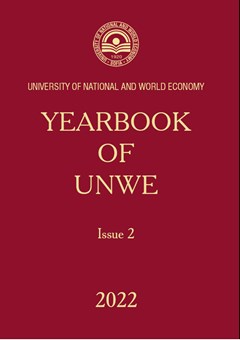Digitalization in Railway Transport as a Factor for Improving the Quality of the Offered Railway Service
Author: Borislav Arnaudov
Abstract
Over the last 20 years, digitalization has been advancing at an extremely rapid pace in all sectors of the economy, with rail being no exception. In today's world, digital technologies manage the railways – the ERTMS system, the ETCS system, the train operation management system, ticket reservations, the exchange of information between railway administrations – are technologies that offer much more added value to the sector. Digitalization and ecology are the key to the competitiveness of rail transport compared to other modes of transport. Improving the efficiency of the organization of the transport process and customer service are the challenges that will be overcome with the implementation of digitalization and its application.
The research of the quality of the offered transport service is fundamental for the sustainable development of the railway industry and its impact on the modal shift to railway transport. Whether national, international, suburban passenger or freight, the latter has significant environmental advantages over other modes of transport. Strategic planning through the introduction of digital technologies will enhance the modal shift to rail transport, which is key to the decarburization of the entire transport industry. The sustainable development of railway transport through the digitalization of the offered transport services contributes to the growth of other industries in the economy.
JEL: R42, Q49

